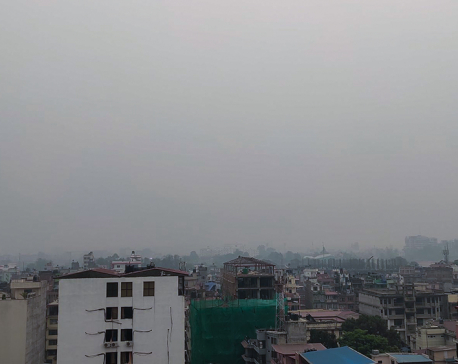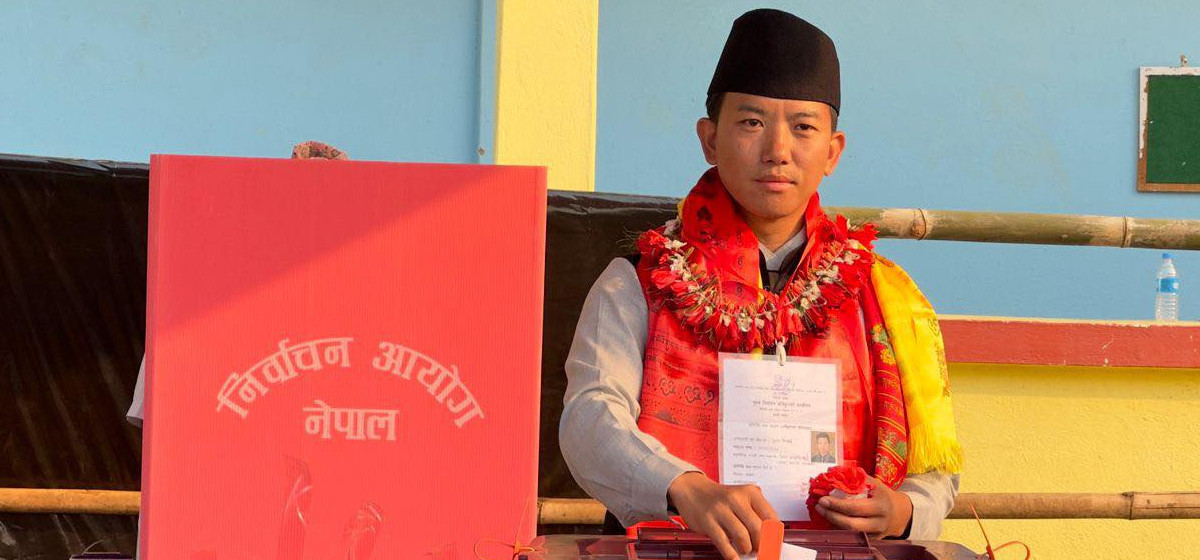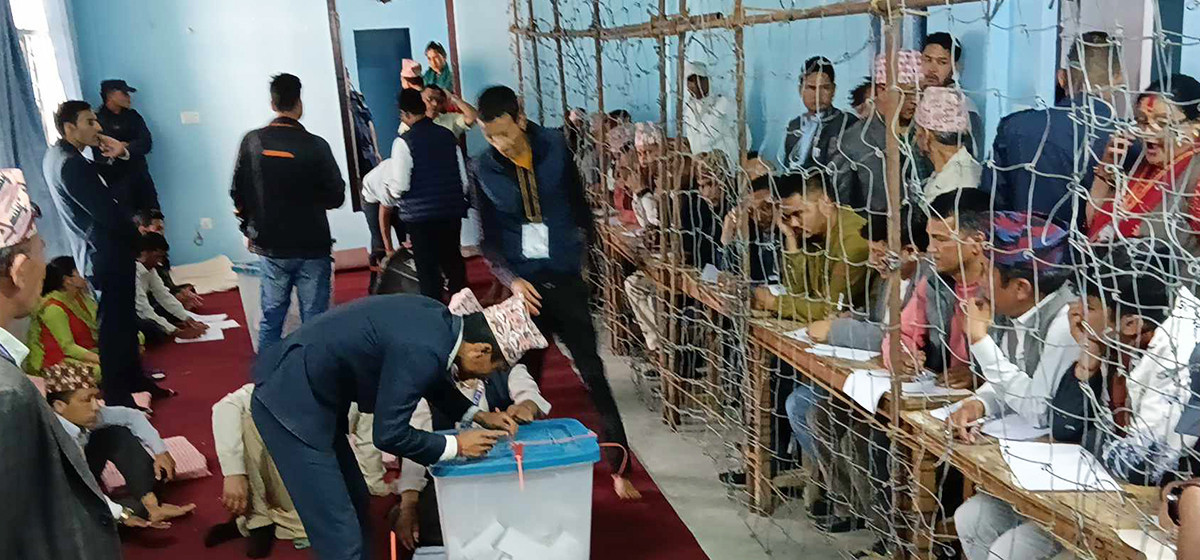
OR
Conjunctivitis risk to persist for additional two weeks
Published On: August 20, 2023 04:00 PM NPT By: Pabitra Sunar

KATHMANDU, Aug 20: Ophthalmologists have alerted the public to the prolonged threat of conjunctivitis, which emerged in the last week of June, extending its grip for an additional two weeks. Experts have emphasized that while the infection rate is subsiding in Terai districts, the risk remains elevated in the Kathmandu Valley and hilly regions.
Dr Kamal Bahadur Khadka, director of Nepal Eye Hospital, remarked, "This contagion is expected to persist until early September."
Dr Meenu Chaudhary, president of Nepal Ophthalmic Society, noted that following the recent cessation of rainfall and the emergence of bright sunny days over the past few days, infection rates have dwindled in the Terai districts. However, the situation remains unchanged in the hilly areas. Since ocular ailments are seasonal, infections are anticipated during this period each year, spanning from July to September.
Dr Chaudhary underscored that the eye disease, originating in Terai, has spread throughout the nation, excluding Himalayan districts. She pointed out that the infection rate is particularly elevated in Terai and hilly regions due to the favorable climate for the virus.
Medical professionals have identified this year's outbreak of eye infections as being caused by the adenovirus. Recovery from this virus generally takes one to two weeks. Dr Chaudhary explained that one of the key reasons for the wide dissemination of eye disease this year is the easy transmissibility of the virus through the personal belongings of infected individuals, such as mobile phones.
Based on data submitted by eye hospitals to the National Epidemiology and Diseases Control Division as of August 11, the infection has affected approximately 44,860 individuals across Nepal. However, this data does not encompass statistics from all eye hospitals. Notably, 50 percent of patients attending Terai-based eye hospitals presented the symptoms of eye infection. Hemant Ojha, head of the Zoonotic & Other Infectious Disease Control Section of the division, acknowledged that although containment is anticipated in a few weeks, the threat might persist until mid-September. Comprehensive data from all hospitals remains challenging to obtain.
Following infection with this virus, patients often experience symptoms like itchy eyes, redness, discomfort, and gradually watery eyes. Sunlight exacerbates the discomfort. Untreated, the infection could potentially lead to complications like corneal perforation and vision loss. In some individuals, the eye's pupil might become inflamed. Given the potential for vision problems, it's imperative to take preventive measures to avoid eye infections and to seek medical treatment promptly if symptoms manifest.
Dr Khadka, the director of Nepal Eye Hospital, emphasizes the need for cautious medication management when dealing with eye infections due to the eye's sensitivity. For treating infections, commonly available antibiotics like ciprofloxacin, moxifloxacin, and tobramycin can be purchased from pharmacies. These can be applied in the eye four to six times daily, varying based on the severity of the infection. Medical professionals stress the importance of collective awareness about this contagious ailment, given its rapid transmission and potential impact on public health.
Dr Chaudhary further recommends adopting preventive measures, akin to those during the COVID-19 pandemic. These include avoiding crowded areas, regular handwashing (at least four to five times a day), minimizing touching of the face and eyes, sanitizing hands in the absence of water, refraining from using others' personal items such as clothes, handkerchiefs, and beds, and avoiding close proximity with individuals exhibiting dry eye symptoms. If feasible, it's advisable not to share personal items, like mobile phones, with infected individuals.
Dr Chaudhary also suggests that infected individuals should refrain from attending school or office, opt to stay home, avoid sharing personal belongings, and cleanse their eyes with clean water.
You May Like This

Eye infection cases rise after air pollution in Kanchanpur
KANCHANPUR, April 7: Health problems like eye infection and allergy have increased among the locals of Kanchanpur due to air... Read More...




Just In
- Nepal and Vietnam could collaborate in promotion of agriculture and tourism business: DPM Shrestha
- Govt urges entrepreneurs to invest in IT sector to reap maximum benefits
- Chinese company Xiamen investing Rs 3 billion in assembling plant of electric vehicles in Nepal
- NEPSE inches up 0.07 points, while daily turnover inclines to Rs 2.95 billion
- Gandaki Province reports cases of forest fire at 467 locations
- Home ministry introduces online pass system to enter Singha Durbar
- MoLESS launches ‘Shramadhan Call Center’ to promptly address labor and employment issues
- Biratnagar High Court orders Krishna Das Giri to appear before court within one month in disciple rape case














Leave A Comment